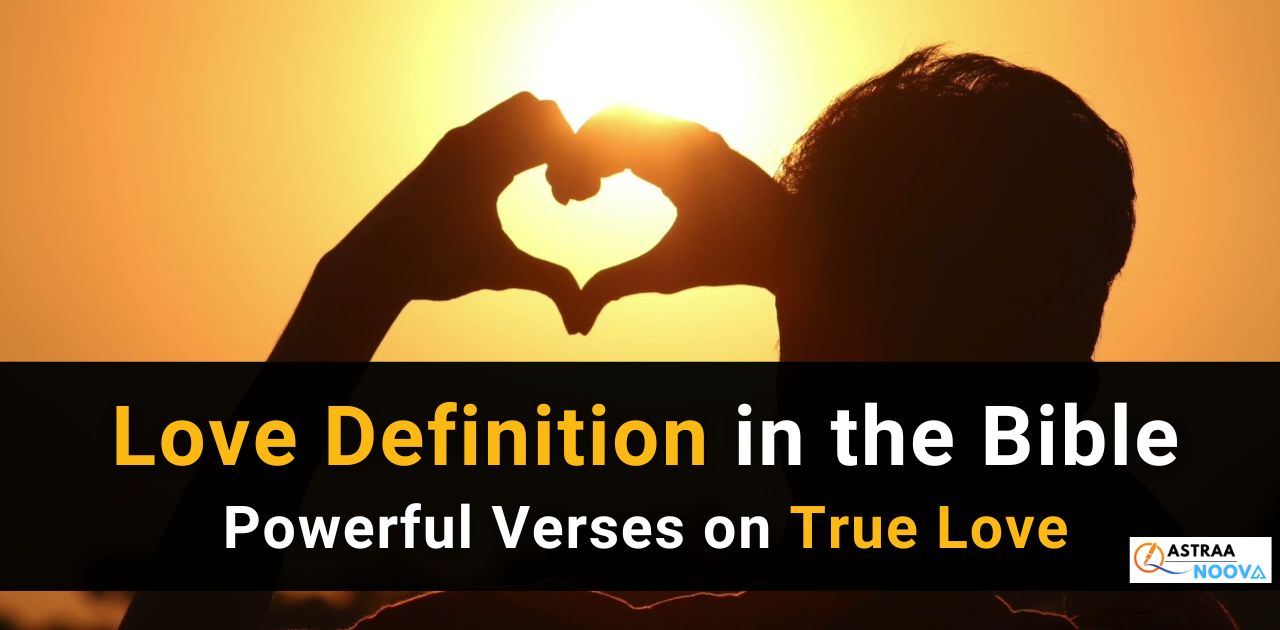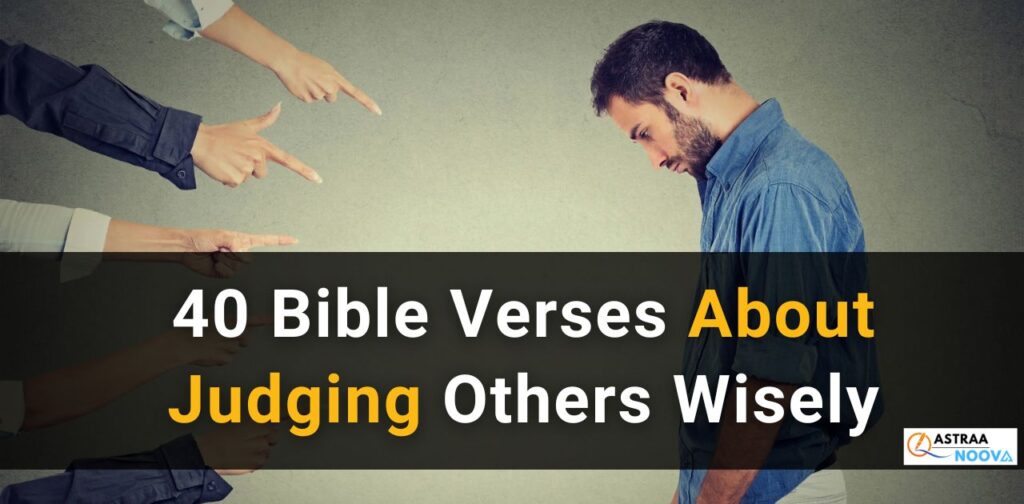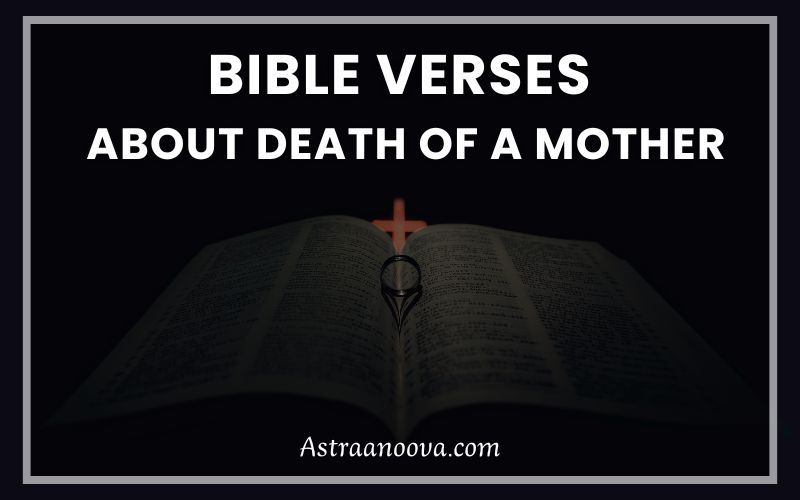In the tapestry of human experience, few concepts are as profound yet misunderstood as love. We casually toss around the word, declaring our love for everything from pizza to puppies, often missing the deep, transformative essence of true love.
The Bible offers a radically different perspective a love that transcends emotion, challenges our understanding, and has the power to fundamentally reshape human relationships.
What is the Biblical Definition of Love?
Biblical love is not a fleeting emotion or simple sentiment. It is a powerful, multifaceted spiritual force that goes far beyond human comprehension. From the opening chapters of Genesis to the final verses of Revelation, Scripture paints a comprehensive picture of love as a divine attribute that defines God’s very nature.
At its core, biblical love is a deliberate, sacrificial commitment that seeks the highest good of another, regardless of circumstances or worthiness. It is unconditional, transformative, and deeply rooted in God’s eternal character.
Unlike modern interpretations that often reduce love to a feeling, biblical love is an active, purposeful choice that demands complete surrender and radical compassion.
The Greek Words for Love in the Bible
Agape – Unconditional “God” Love
The Greek language provides remarkable depth to our understanding of love, with agape representing the highest and most profound expression. Agape love is the purest form of unconditional love that originates directly from God. It is a selfless, sacrificial love that expects nothing in return.
“For God so loved the world that he gave his one and only Son, that whoever believes in him shall not perish but have eternal life.” – John 3:16
This verse encapsulates agape love a love so vast and unconditional that it would sacrifice the most precious to redeem the unworthy. Unlike human love, which is often transactional, agape love gives freely, without calculation or expectation.
Phileo – Brotherly Love
Phileo represents the deep, nurturing affection shared among friends, family, and community. It is a love of deep friendship, mutual care, and genuine connection. This type of love reflects the supportive, protective nature of relationships built on trust, respect, and mutual understanding.
Eros – Romantic Love
Eros describes the passionate, romantic love between husband and wife. While less frequently discussed in Scripture, it represents the intimate, physical expression of love within the sacred covenant of marriage. Biblical eros is not merely physical attraction but a profound spiritual and emotional connection that reflects the relationship between Christ and the Church.
Spiritual Definition of Love
Love in the biblical context is fundamentally a spiritual experience. It is not merely an emotion but a transformative power that connects humanity with divine purpose. Through love, believers experience God’s redemptive plan, transcending personal limitations and experiencing spiritual growth.
The spiritual dimension of love goes beyond human capability. It requires supernatural intervention, enabling individuals to love beyond their natural inclinations to love enemies, forgive the unforgivable, and extend grace in impossible situations.
Jesus’ Definition of True Love
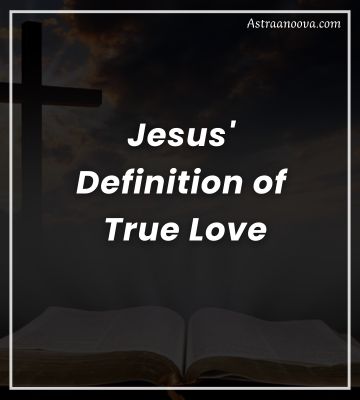
“Love Your Neighbor as Yourself”
When Jesus was asked about the greatest commandment, He provided a revolutionary definition of love that challenged existing social and religious norms. In Matthew 22:37-39, He proclaimed two interconnected commandments that would become the cornerstone of Christian understanding:
“Love the Lord your God with all your heart and with all your soul and with all your mind. This is the first and greatest commandment. And the second is like it: Love your neighbor as yourself.”
This teaching was transformative. It expanded love beyond familial or tribal boundaries, demanding a radical reimagining of human relationships. Jesus suggested that genuine love transcends personal comfort, requiring individuals to view every person with the same care and respect they would want for themselves.
The Greatest Love – Laying Down One’s Life
Christ’s most profound demonstration of love came through ultimate sacrifice. In John 15:13, He articulated the pinnacle of love’s expression:
“Greater love has no one than this: to lay down one’s life for one’s friends.”
This was not merely rhetorical. Jesus literally embodied this principle through His sacrificial death on the cross, providing a tangible model of selfless love that would reshape human understanding of divine compassion.
What is God’s Definition of Love?
God’s definition of love emerges not from abstract theological discourse but from His direct interaction with humanity. 1 John 4:8 provides a succinct yet profound declaration: “God is love.” This means love is not just something God does, but fundamentally who He is.
Divine love is characterized by several extraordinary qualities:
- Unconditional acceptance
- Infinite mercy
- Persistent pursuit of relationship
- Transformative power
- Redemptive intention
This love doesn’t depend on human worthiness. Romans 5:8 emphasizes this radical concept:
“But God demonstrates his own love for us in this: While we were still sinners, Christ died for us.”
Powerful Bible Verses on True Love

1 Corinthians 13:4-8 – The Characteristics of Love
Perhaps the most comprehensive biblical description of love appears in 1 Corinthians 13:4-8:
“Love is patient, love is kind. It does not envy, it does not boast, it is not proud. It does not dishonor others, it is not self-seeking, it is not easily angered, it keeps no record of wrongs. Love does not delight in evil but rejoices with the truth. It always protects, always trusts, always hopes, always perseveres. Love never fails.”
This passage provides a multifaceted blueprint of authentic love, contrasting it with superficial, conditional human expressions.
John 15:13 – The Greatest Love
“Greater love has no one than this: to lay down one’s life for one’s friends.”
Christ’s statement elevates love from an emotion to the highest act of human devotion—sacrificial surrender.
1 John 4:7-8 – God is Love
“Dear friends, let us love one another, for love comes from God. Everyone who loves has been born of God and knows God. Whoever does not love does not know God, because God is love.”
These verses establish love as both a divine origin and a spiritual litmus test for genuine faith.
Romans 12:9-10 – Love Must Be Sincere
“Love must be sincere. Hate what is evil; cling to what is good. Be devoted to one another in love. Honor one another above yourselves.”

This passage challenges believers to practice authentic, action-oriented love that prioritizes others’ well-being over personal interests.
Song of Songs 8:6-7 – Love is Strong as Death
“Place me like a seal over your heart, like a seal on your arm; for love is as strong as death, its jealousy unyielding as the grave. It burns like blazing fire, like a mighty flame. Many waters cannot quench love; rivers cannot sweep it away.”
Poetic imagery illustrates love’s intensity, depicting it as an unstoppable, consuming force more powerful than natural elements.
Read Also >> 20 Uplifting Bible Verses About Parents Love for Child
1 Peter 4:8 – Love Covers Over Sins
“Above all, love each other deeply, because love covers over a multitude of sins.”
This verse emphasizes love’s transformative power to heal, forgive, and restore relationships through gracious understanding.
Ephesians 5:25 – Husbands, Love Your Wives
“Husbands, love your wives, just as Christ loved the church and gave himself up for her.”
A profound directive establishing marriage as a sacred covenant reflecting Christ’s sacrificial love for His spiritual community.
Proverbs 10:12 – Love Covers Over Offense
“Hatred stirs up conflict, but love covers over all wrongs.”
This profound verse contrasts the destructive nature of hatred with love’s remarkable ability to heal and reconcile. Love doesn’t merely ignore offenses but transforms them through grace and understanding.
1 John 3:18 – Love With Actions
“Dear children, let us not love with words or tongue but with actions and in truth.”

Biblical love transcends mere rhetoric. It demands tangible demonstration, challenging believers to transform compassionate thoughts into concrete acts of kindness and support.
Colossians 3:14 – Love Binds Together in Unity
“And over all these virtues put on love, which binds them all together in perfect unity.”
Love emerges as the supreme virtue that harmonizes all other spiritual qualities. It serves as the cohesive force that brings believers together, creating spiritual synergy.
John 13:34-35 – The New Commandment
“A new command I give you: Love one another. As I have loved you, so you must love one another. By this everyone will know that you are my disciples, if you love one another.”
Christ establishes love as the defining characteristic of true discipleship. Authentic love becomes the visible evidence of spiritual transformation.
Ephesians 3:17-19 – The Immeasurable Love of Christ
“…And I pray that you, being rooted and established in love, may have power to grasp how wide and long and high and deep is the love of Christ, and to know this love that surpasses knowledge…”
This passage illustrates the incomprehensible vastness of divine love, challenging human understanding and inviting spiritual exploration.
Hosea 3:1 – Unconditional Love
“Go, show your love to your wife again, though she is loved by another and is an adulteress. Love her as the Lord loves the Israelites, though they turn to other gods…”
A powerful metaphor demonstrating God’s unwavering love, which persists despite human unfaithfulness and betrayal.
Zephaniah 3:17 – God’s Delightful Love
“The Lord your God is with you, he is mighty to save. He will take great delight in you, he will quiet you with his love, he will rejoice over you with singing.”

This verse reveals an intimate, personal dimension of divine love—God’s profound joy and delight in His people.
Luke 6:27-28 – Loving Enemies
“But to you who are listening I say: Love your enemies, do good to those who hate you, bless those who curse you, pray for those who mistreat you.”
Christ’s most challenging teaching on love, demanding a supernatural ability to love beyond natural human inclinations.
Romans 8:38-39 – Inseparable Love
“For I am convinced that neither death nor life…nor anything else in all creation, will be able to separate us from the love of God that is in Christ Jesus our Lord.”
A powerful declaration of love’s permanence and God’s unbreakable commitment to humanity.
Jeremiah 31:3 – Everlasting Love
“I have loved you with an everlasting love; I have drawn you with loving-kindness.”
This verse reveals the timeless nature of divine love—a love that exists beyond temporal boundaries, constantly pursuing and drawing humanity closer to God.
Lamentations 3:22-23 – Merciful Love
“Because of the Lord’s great love we are not consumed, for his compassions never fail. They are new every morning; great is your faithfulness.”
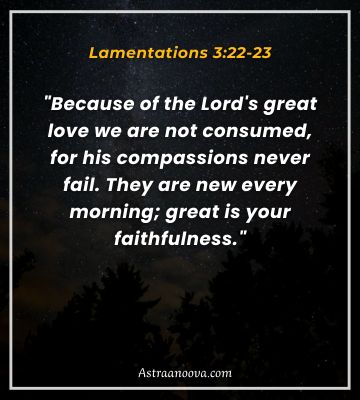
A profound testimony to God’s merciful love, which renews itself daily, offering hope and restoration regardless of past failures.
Jude 1:21 – Abiding in Love
“Keep yourselves in God’s love as you wait for the mercy of our Lord Jesus Christ to bring you to eternal life.”
An instructive verse emphasizing the active role believers play in maintaining their spiritual connection through love.
Psalm 36:7 – Precious Love
“How priceless is your unfailing love, O God! People take refuge in the shadow of your wings.”
Poetic imagery depicting love as a source of protection, comfort, and ultimate security.
Deuteronomy 7:9 – Faithful Love
“Know therefore that the Lord your God is God; he is the faithful God, keeping his covenant of love to a thousand generations of those who love him and keep his commandments.”
A powerful declaration of God’s enduring commitment, demonstrating love as a covenant that transcends individual lifetimes.
Read Also >> 30 Bible Verses About Welcoming Visitors (Explained)
1 John 4:12 – Love’s Completeness
“No one has ever seen God; but if we love one another, God lives in us and his love is made complete in us.”
This verse illustrates how human love becomes a tangible expression of divine presence, making God’s love visible through human interactions.
John 14:21 – Love and Obedience
“Whoever has my commands and keeps them is the one who loves me. The one who loves me will be loved by my Father…”

A profound connection between love, obedience, and spiritual intimacy, suggesting that true love manifests through faithful adherence to divine principles.
Ephesians 5:2 – Walking in Love
“…and walk in the way of love, just as Christ loved us and gave himself up for us as a fragrant offering and sacrifice to God.”
An exhortation to embody Christ-like love as a spiritual lifestyle, characterized by selfless sacrifice.
1 Corinthians 16:14 – Comprehensive Love
“Do everything in love.”
A concise yet powerful directive to infuse every aspect of life with the transformative power of love.
1 John 5:3 – Love and Obedience
“In fact, this is love for God: to keep his commands. And his commands are not burdensome.”
Reaffirming the intrinsic connection between love, obedience, and spiritual freedom.
Revelation 2:4-5 – Maintaining First Love
“Yet I hold this against you: You have forsaken the love you had at first. Remember the height from which you have fallen! Repent and do the things you did at first.”
A sobering reminder to maintain spiritual passion and the initial depth of one’s love for God.
2 John 1:6 – Love and Obedience
“And this is love: that we walk in obedience to his commands. As you have heard from the beginning, his command is that you walk in love.”
A final testament to the cyclical nature of love obedience breeds love, and love inspires obedience.
Why is Love the Greatest?
The Apostle Paul provides definitive insight in 1 Corinthians 13:13:
“And now these three remain: faith, hope and love. But the greatest of these is love.”

Love transcends other spiritual virtues because it represents the ultimate expression of divine connection. While faith provides foundation and hope offers promise, love represents complete spiritual transformation.
Conclusion
Biblical love is far more than an emotion or philosophical concept. It is a divine invitation to participate in God’s redemptive plan. From Genesis to Revelation, Scripture consistently portrays love as the fundamental mechanism through which humanity experiences divine grace.
Christ’s teachings and sacrificial example demonstrate that love is not passive but an active, intentional choice. It requires courage to love unconditionally, forgive comprehensively, and serve selflessly.
For Christians, love becomes a spiritual discipline a daily commitment to reflect God’s character through deliberate, sacrificial actions. It transcends personal comfort, cultural boundaries, and human limitations.
FAQ’s
What is the biblical definition of love?
Biblical love is a selfless, unconditional commitment that originates from God, transcending human emotion and demonstrating sacrificial care for others without expectation of return.
How does Jesus define love in the Bible?
Jesus defines love as loving God completely and loving neighbors as oneself, exemplified through sacrificial action, forgiveness, and putting others’ needs before personal comfort.
What role does love play in Christianity?
Love is the fundamental spiritual force that connects believers to God and each other, serving as the core expression of faith, driving redemption, transformation, and spiritual unity.
How is love expressed in the Bible?
Biblical love is expressed through actions of forgiveness, service, sacrifice, compassion, protecting the vulnerable, extending grace, and maintaining unwavering commitment despite circumstances.
What is the significance of love in Christian teachings?
Love represents the highest spiritual virtue, reflecting God’s nature, fulfilling divine commandments, transforming relationships, and providing the mechanism for spiritual growth and redemption.
How is biblical love different from romantic love?
Biblical love encompasses romantic love but extends far beyond physical or emotional attraction. It represents a holistic, spiritual connection reflecting divine attributes of unconditional commitment and sacrificial care.
Can anyone experience this type of love?
Absolutely. Biblical love is universally accessible, transcending cultural, social, and personal boundaries. It requires willingness to embrace vulnerability, practice forgiveness, and prioritize others’ well-being.
How can I develop biblical love in my life?
Start by studying Scripture, practicing intentional compassion, forgiving generously, serving without expectation, and cultivating a genuine desire to understand and support others.
Read Also >> 56 Uplifting Bible Verses for Finding Comfort and Strength in Tough Times

Multilingual faith educator exploring connections between language, spirituality, and dream symbolism.
